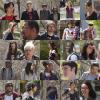I find Walter Brueggemann's framework of orientation, disorientation, and reorientation quite helpful as we as a denomination try to grow in diversity and unity. According to Brueggemann, our faith journey begins with orientation, where we find ourselves in a state of deep gratitude for life's blessings. This phase is characterized by a sense of peace and order, where everything in our lives aligns harmoniously with God's creation. Yet, inevitably, we enter periods of disorientation, marked by loss, crisis, and confusion. It's during these times that we turn to God, pouring out our grief, sins, and frustrations. This phase challenges us, unraveling the fabric of our lives and compelling us to question and seek deeper understanding. Reorientation emerges as a transformative phase, where we celebrate redemption and reconciliation. This stage brings profound gratitude and awareness, deepening our faith and broadening our understanding of life and the divine.
This cyclical spiritual journey is mirrored in the Passion Week narrative. We commence with Palm Sunday's celebration of Jesus' entry into Jerusalem, a moment of collective hope and expectation. Yet, as the week progresses, the narrative shifts dramatically. Jesus' radical teachings lead to alienation and rejection, culminating in His crucifixion. This dark moment of disorientation gives way to the light of the Resurrection, a powerful symbol of reorientation and new beginnings.
This shift underscores a crucial phase of disorientation, as we grapple with the implications of our evolving identity as a community of faith.
My personal journey reflects this biblical cycle. Raised in the Korean Presbyterian Church in Paraguay, I was taught to pray with intensity and affirm fervently. This practice of deep, vocal prayer was a foundational aspect of my spiritual orientation. I also had been taught that God is holy and all-powerful and so He deserves our utmost respect and reverence. However, encountering diverse beliefs and worship practices, particularly those of my American friends who embraced a more intimate relationship with God, sparked a period of disorientation. They would view God as their best buddy and this relational approach seemed disrespectful from my perspective. It contrasted sharply with my upbringing, where God was revered as holy and all-powerful. Witnessing such different expressions of faith sparked a deep self-reflection on my own beliefs, ways of worship, and discipleship. This period of questioning and uncertainty marked a significant disorientation in my faith journey, challenging me to reconcile these various approaches to relating with God.
As we, the Christian Reformed Churches, particularly in Canada, navigate a profound transformation towards greater diversity, we are informed by Statistics Canada's projections that by 2041, one out of two Canadians will be either Black, Indigenous, or a person of colour. This demographic shift is being reflected in our neighborhood and within our congregations.
This transition, while exciting for some, brings about a sense of disorientation and loss for others. Changes in worship styles, meeting times, and even language require adjustments and the use of translation equipment, marking a departure from the familiar and predictable. The church, once a place of comfort, now presents new challenges as we strive to accommodate diverse perspectives. This shift underscores a crucial phase of disorientation, as we grapple with the implications of our evolving identity as a community of faith.
This dual approach has enriched my spiritual and emotional life, granting me a more profound and expansive understanding of God.
As we go through this profound journey, we inevitably reach a phase of reorientation or new orientation. The Christian faith, over the course of two millennia, has continuously adapted and reformed to the evolving fabric of society, embodying a new normal with each era. Within the Reformed tradition, our ethos is to continually reassess and reform our practices in response to the shifting realities around us. This adaptability is one of our greatest strengths. Although it may require time, we, as Christian Reformed Churches, will learn to navigate growing in diversity and unity, ultimately finding ourselves in a place of gratitude and enhanced awareness.
On a personal note, I have reached a point where I can enter with both reverence and intimacy, honoring God with the respect He deserves, while also embracing Him as a close friend. This dual approach has enriched my spiritual and emotional life, granting me a more profound and expansive understanding of God.
One significant aspect of our church's journey through disorientation is the learning process of decentralizing our traditional ways of being a church. In embracing our growing diversity, we make shifts and changes that may render our worship spaces and gatherings foreign to some. However, it is precisely through these adaptations that we are reforming our community into a more inclusive space of belonging for all members. Where our church may have once primarily catered to a legacy congregation, we are now evolving into a community for both longstanding and new members, enriching and thriving together.
This journey is continuous, marked by cyclical movements and new challenges. Yet, this process is integral to our faith journey, for it is through God's grace that we find the strength to reorient and reform ourselves. Our goal is to embody the vision articulated in Revelation 7:9-10, a scripture that paints a picture of a diverse multitude unified in worship.
Photo by Sies Kranen on Unsplash




The Reformed family is a diverse family with a diverse range of opinions. Not all perspectives expressed on the blog represent the official positions of the Christian Reformed Church. Learn more about this blog, Reformed doctrines, and our diversity policy on our About page.
In order to steward ministry shares well, commenting isn’t available on Do Justice itself because we engage with comments and dialogue in other spaces. To comment on this post, please visit the Christian Reformed Centre for Public Dialogue’s Facebook page (for Canada-specific articles) or the Office of Social Justice’s Facebook page. Alternatively, please email us. We want to hear from you!
Read more about our comment policy.